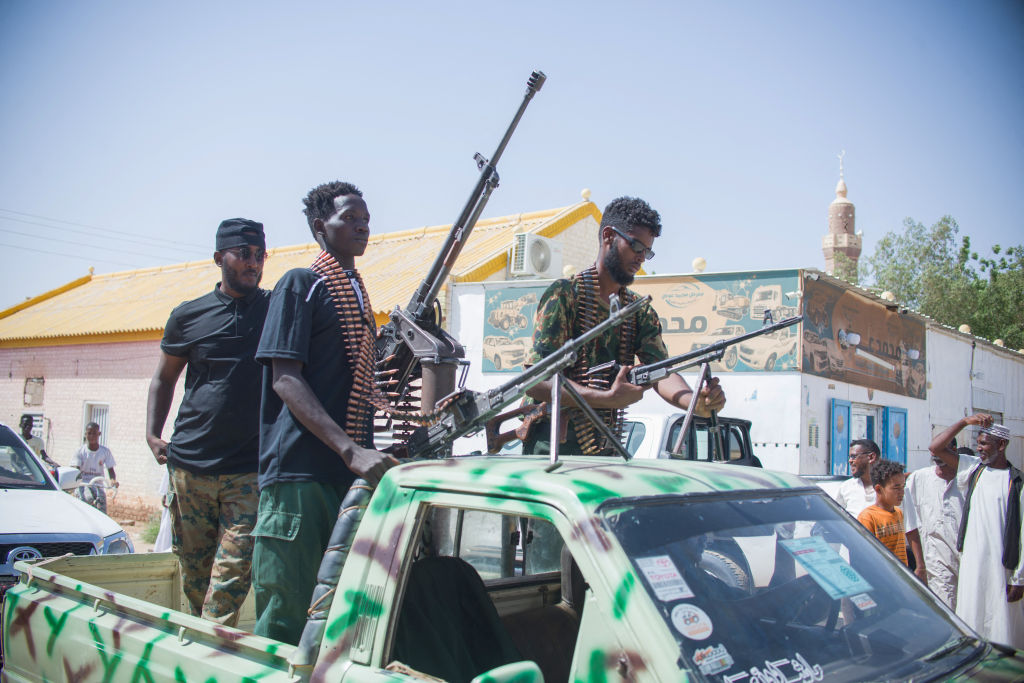ADF STAFF
Nearly 15 months of chaos and war in Sudan have primed the country for the potential return of al-Qaida at a time when the terrorist network is seeking to strengthen its bases across the Sahel and launch attacks on shipping in the Red Sea, experts say.
“The risk of al-Qaida gaining ground in Sudan is real and imperils not only the country but also regional and potentially global security,” analyst Maria Zupello wrote recently on Substack.
According to Hafed al-Ghwell, a senior fellow at Johns Hopkins Schools of Advanced International Studies, Sudan’s mix of insecurity, economic distress, social unrest and unstable neighbors is a recipe for the rise of extremists in the country.
“Sharing a border with Libya, Chad and Somalia, where violent extremist groups continue to operate, the porous borders and weak security infrastructure in the region create perfect conditions for terrorists to relocate and move weapons, contraband and other illicit supplies,” al-Ghwell wrote in the Arab News.
A key cause of Sudan’s instability is the power vacuum created by fighting between the Sudanese Armed Forces (SAF) loyal to Gen. Abdel Fattah al-Burhan and the Rapid Support Forces (RSF) controlled by Gen. Mohamed Hamdan “Hemedti” Dagalo in April 2023.
Al-Qaida was headquartered in Sudan from 1991 to 1996 under dictator Omar al-Bashir before being forced to leave. In 2006, former al-Qaida leader Osama bin Laden described Sudan as the key to al-Qaida’s international operations. Al-Qaida maintains ties to the RSF.
Even before the outbreak of violence between the SAF and RSF, Abu Hudhaifa al-Sudani, a prominent figure within al-Qaida, published an 83-page book of letters in 2022 designed to, in his words, “sow the seeds of jihad” in Sudan and guide followers in reestablishing an al-Qaida stronghold there.
“Even though it does not currently have a clear presence inside Sudan, al-Qaida still seeks the potential to have such a network by providing this step-by-step guide on how to form a jihadist group, as well as cultivate and maintain popular support in the endeavor,” analyst Caleb Weiss wrote about the al-Sudani manifesto.
In 2023, al-Qaida affiliated groups launched more than 1,300 terrorist attacks around the world. Although more than 1,000 of those attacks were by al-Shabaab in Somalia and Kenya, a future al-Qaida based in Sudan could be even more dangerous, experts agree.
Sudan’s ongoing instability has increased the potential for al-Sudani’s manifesto to bear fruit, according to analyst Sara Harmouch.
“Strategically bridging North and sub-Saharan Africa, Sudan is a key location for Islamist extremists aiming to expand their influence across the region,” Harmouch wrote recently for The Conversation.
In addition to its location, Sudan’s wealth of resources — including gold and oil — make it a prime spot for al-Qaida to set up shop.
Al-Sudani’s vision for al-Qaida in Sudan calls for a Khartoum command center that would oversee military attacks from Dongola in the north to Darfur in the south.
An al-Qaida base in Sudan could become the link between the network’s affiliates in the western Sahel and Yemen on the Arabian Peninsula and allow the group to threaten shipping in the Red Sea, according to Zupello.
“The resurgence of al-Qaida capabilities could lead to increased piracy, militarized blockades, and unregulated arms flow, escalating regional tensions and causing broader geopolitical unrest,” Zupello wrote.

